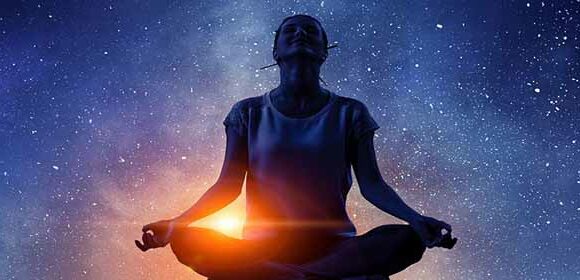Let’s talk about something we’ve all probably thought about at one time or another: being spiritual versus being religious. It’s a conversation that often pops up, especially when we’re trying to figure out where we stand on matters of faith, belief, and personal growth. You’ve likely heard someone say, “I’m spiritual, but not religious,” or maybe you’ve even said it yourself. But what does that really mean? And is there a difference between the two, or do they overlap in ways we haven’t fully explored?
We live in a time where the lines between spirituality and religion can feel a little blurred. And while some people find comfort in the structure of organized religion, others prefer the more free-flowing, personal experience of spirituality. There’s no right or wrong answer here, but it’s worth diving into what each term means and why they matter in our lives. So, let’s dig in, shall we?
Religion: Structure and Tradition
Let’s start with religion. For many people, religion is about structure—it’s a system of beliefs, practices, and rituals that connect individuals to a higher power. Whether it’s Christianity, Islam, Judaism, Hinduism, or any other organized religion, these traditions have deep roots in history, offering guidance on how to live a moral, meaningful life.
Religious practices often come with sacred texts, like the Bible, the Quran, or the Bhagavad Gita, which lay out teachings and stories that followers turn to for wisdom. There’s something incredibly comforting about the sense of community that religion provides. You’re not walking your spiritual path alone—you’re surrounded by others who share your beliefs, and together, you participate in rituals that have been handed down through generations.
But religion can sometimes feel rigid, can’t it? Some people find the rules and dogma restrictive, or they struggle with the idea of a higher power being defined in one specific way. Maybe you grew up attending religious services, but as you got older, you started to wonder, “Is this *my* path? Does this resonate with me?” And that’s a totally valid question to ask yourself. After all, faith is deeply personal.
Spirituality: A Personal Journey
Now, let’s talk about spirituality. If religion is about structure, then spirituality is more like freestyle jazz. It’s a bit looser, more personal, and it’s about your individual connection to the universe, God, or whatever higher power you believe in. You might not have a set doctrine to follow, but you know there’s something bigger out there—and you’re interested in exploring it on your own terms.
A lot of people who identify as “spiritual” rather than “religious” are drawn to practices like meditation, yoga, or mindfulness. They might also explore ideas from different traditions—like Buddhist teachings on mindfulness or Indigenous wisdom about the interconnectedness of all life—without committing to one specific belief system. It’s a bit like creating your own spiritual playlist, pulling in songs (or practices) that resonate with your soul.
Spirituality often feels like a journey inward, where you focus on personal growth, connection to your higher self, and understanding the mysteries of life. And here’s the beauty of it: there’s no one right way to be spiritual. Some people find their spirituality in nature, others in creative expression, and some through quiet reflection. There’s freedom in spirituality, and that’s what makes it so appealing to many.
So, Are They Really So Different?
Here’s the big question: are spirituality and religion really so different? And do you have to choose between the two? The answer is: not necessarily.
For some, the structure of religion provides a strong foundation, and within that foundation, they cultivate a deep spiritual connection. For example, someone might practice Christianity and find deep, personal meaning in prayer or the sacraments—both of which can be spiritual experiences within a religious framework. In this case, spirituality and religion aren’t separate at all—they’re intertwined.
On the flip side, there are people who feel that spirituality allows them to explore the divine in a more open-ended way. They may not need the structure of religion to feel connected to something greater. For them, spirituality is about creating a relationship with the divine that isn’t limited by tradition or dogma. And that’s perfectly valid, too!
The truth is, spirituality and religion don’t have to be mutually exclusive. You can be spiritual within a religious context, or you can be spiritual without following a particular religion. The key is figuring out what resonates with you personally.
Finding What Resonates
Speaking of personal resonance, let’s pause for a moment. Have you ever felt drawn to something but couldn’t quite explain why? Maybe it was a particular place, practice, or even a certain passage in a book that gave you goosebumps or a sense of peace. That’s your soul recognizing something meaningful.
When it comes to spirituality or religion, finding what resonates with you is crucial. It’s like tuning a radio to just the right station where everything sounds clear. You might find that connection in a religious community, where shared beliefs and rituals bring you closer to a sense of purpose. Or maybe your soul feels more at home when you’re sitting in silence, meditating under a tree, connecting with nature.
For example, I once met someone who attended Catholic mass every Sunday but also practiced yoga and meditation. For them, the mass provided a sense of community and tradition, while yoga helped them feel grounded and connected to their body. They didn’t see these practices as contradictory; instead, they saw them as complementary. And that’s the beauty of it—you can mix and match what works for you.
Limitations and the Unknown
Here’s the thing, though: we’re talking about some pretty big topics here—life, death, meaning, the divine. And the truth is, none of us have all the answers. Whether you follow a specific religion or identify as spiritual, there will always be mysteries that we can’t fully understand. And honestly, isn’t that part of the adventure?
The unknown can be scary, but it can also be beautiful. It invites us to stay curious, to keep seeking, and to remain open to new experiences and insights. Whether you’re exploring through religious texts or tuning in during meditation, the journey toward understanding is ongoing. And that’s okay.
The Role of Compassion and Connection
One thing that both spirituality and religion often emphasize is compassion—compassion for ourselves and others. Whether you’re practicing the Golden Rule in Christianity (“Do unto others as you would have them do unto you”) or embracing the Buddhist principle of loving-kindness, compassion plays a central role in both spiritual and religious paths.
In the end, maybe what really matters isn’t so much whether we’re spiritual or religious, but how we’re showing up in the world. Are we kind? Are we compassionate? Are we striving to connect with something greater than ourselves, in whatever form that takes? Whether it’s through prayer, meditation, or simply being present with the people we love, these acts of connection might just be what spirituality and religion are all about.
Final Thoughts
At the end of the day, the question “Spiritual or religious?” isn’t about drawing hard lines between the two. It’s about finding what brings you peace, what makes you feel connected, and what resonates with your heart and soul. You don’t have to pick a side, and you certainly don’t have to fit into anyone else’s mould.
Whether you find meaning in traditional religious practices, or you’re more of a “create your own path” spiritual seeker, the journey is yours to explore. And honestly, that’s the best part—discovering what feels true to you.
So, are you spiritual? Religious? Or maybe a bit of both? Wherever you land, remember that the path to understanding is ongoing, and it’s okay if you’re still figuring it out. We all are.
And really, isn’t that the most spiritual thing of all?








